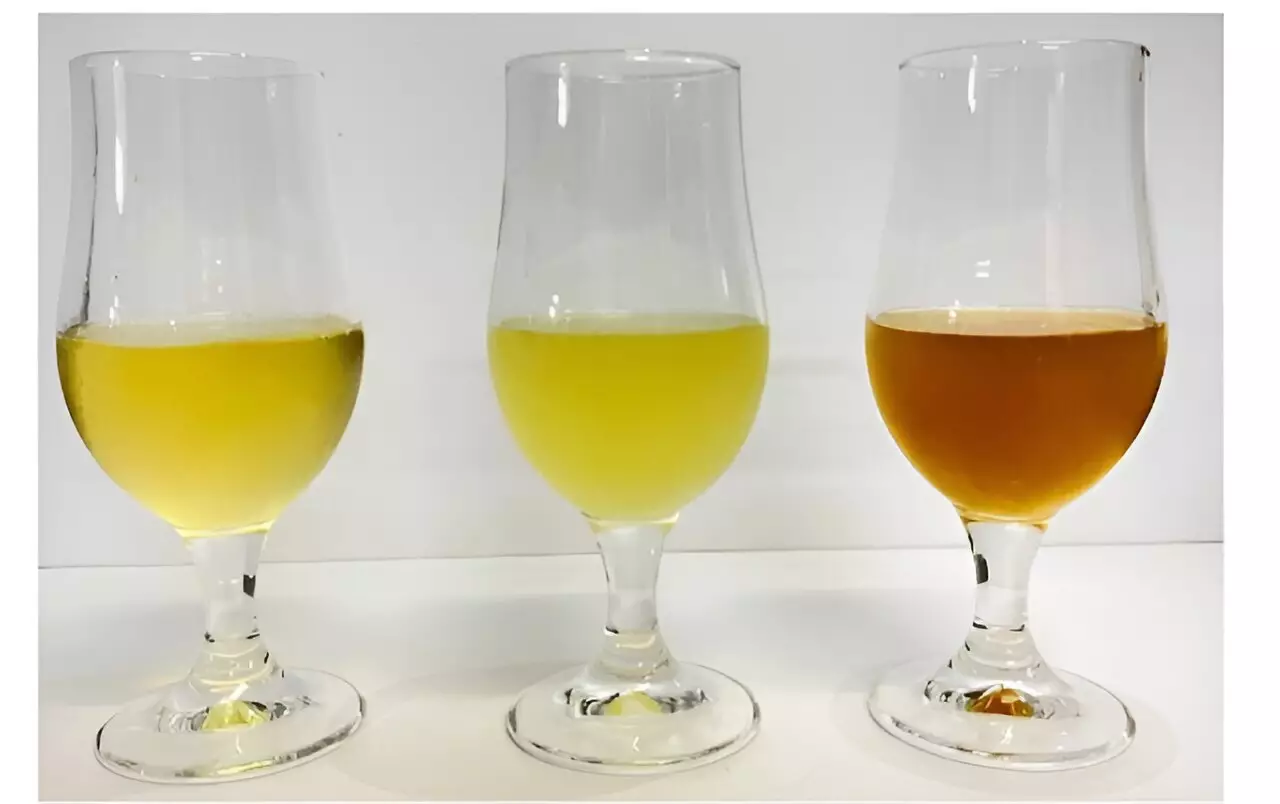Kombucha, a popular fermented tea drink, has surged in popularity over the past few years due to its claimed health benefits and unique flavors. Traditionally crafted by fermenting sweetened black or green tea with a SCOBY (symbiotic culture of bacteria and yeast), this effervescent beverage is celebrated for its probiotics and antioxidants. However, innovative brewers are now venturing beyond tea, experimenting with a variety of plant-based liquids to create novel ferments that retain the charm of kombucha while introducing new nutritional profiles and flavors.
A recent study spotlighted in ACS Agricultural Science & Technology scrutinized the biochemical composition and flavor characteristics of kombucha alongside ferments derived from apple and passion fruit juices. This investigation represents a pivotal moment in understanding the potential of non-tea beverages to mimic the benefits traditionally associated with kombucha. The researchers sought to enrich the diversity of kombucha-like options available to consumers, amplifying the discussion around kombucha’s health claims and flavor potential.
The study revealed that the apple-based fermented liquid possessed the highest concentrations of bioactive flavonoids, surpassing both the kombucha and passion fruit beverages. This finding indicated that apple juice could serve as a potential alternative to the conventional tea base due to its superior antioxidant properties. Furthermore, while kombucha and apple were found to share comparable levels of phenolic compounds, the passion fruit drink fell short, suggesting that not all fruit juices are equally equipped to undergo fermentation without sacrificing health benefits. The presence of anthocyanins across all three beverages highlights the potential for varied color profiles, which could appeal to different market segments seeking visually attractive health drinks.
Twelve volunteer taste testers were tasked with evaluating the sensory attributes of the fermented drinks. Their assessments revealed intriguing nuances: the apple beverage was distinguished by a pleasing amber hue and a robust, fruity aroma, while the kombucha exhibited a more classic golden tone. The passion fruit variant, while vibrant, was characterized by a noticeable bitterness. Ultimately, the testers favored the apple and traditional kombucha equally, underscoring the importance of flavor in consumer preference. This suggests that for a commercial success as an alternative to kombucha, any new beverage must not only deliver on health benefits but also satisfy taste expectations.
In light of these findings, researchers suggest that fermented apple juice may carve a niche as a viable substitute for traditional kombucha. The exploration does not end here; there is a burgeoning interest in the realm of fermentation, with scientists and artisans alike eager to uncover the capabilities of other fruit-based drinks. By expanding the classifications of kombucha-like beverages, we may not only diversify consumer options but also enhance the nutritional landscape of fermented drinks. Future explorations may unveil a broader array of flavors and health benefits, enticing consumers and health enthusiasts alike to embrace the renaissance of fermentation in the beverage industry. As the knowledge base grows, so too will the potential for innovative brews that challenge the norms of what we consider kombucha.

